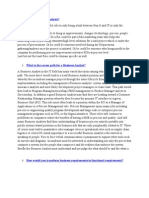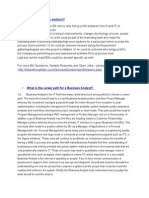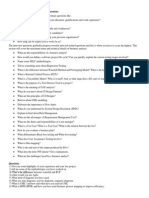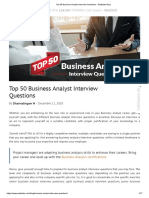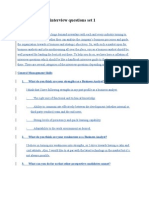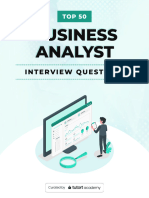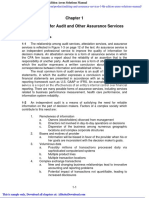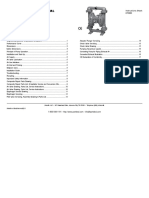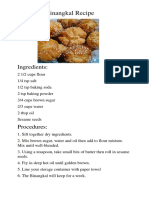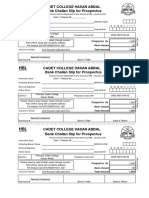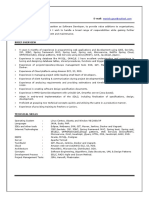0% found this document useful (0 votes)
48 views9 pagesInteractX - BA Interview Questions-4
This document provides over 50 interview questions for Business Analyst roles, categorized by experience level: Freshers, Associate/Junior, and Senior. It includes situational and HR round questions to assess candidates' skills in requirement gathering, stakeholder management, and cultural fit. The guide aims to help aspiring Business Analysts prepare effectively for interviews and emphasizes understanding concepts rather than memorizing answers.
Uploaded by
mickeyCopyright
© © All Rights Reserved
We take content rights seriously. If you suspect this is your content, claim it here.
Available Formats
Download as PDF, TXT or read online on Scribd
0% found this document useful (0 votes)
48 views9 pagesInteractX - BA Interview Questions-4
This document provides over 50 interview questions for Business Analyst roles, categorized by experience level: Freshers, Associate/Junior, and Senior. It includes situational and HR round questions to assess candidates' skills in requirement gathering, stakeholder management, and cultural fit. The guide aims to help aspiring Business Analysts prepare effectively for interviews and emphasizes understanding concepts rather than memorizing answers.
Uploaded by
mickeyCopyright
© © All Rights Reserved
We take content rights seriously. If you suspect this is your content, claim it here.
Available Formats
Download as PDF, TXT or read online on Scribd
/ 9


















